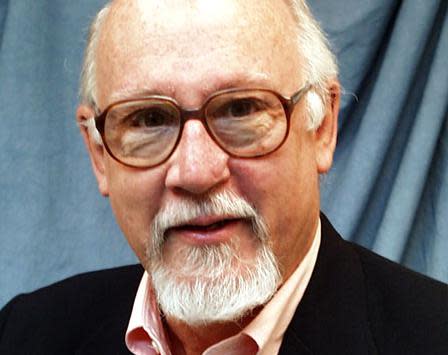Yaa Gyasi’s new novel explores addiction, depression, science and faith | DON NOBLE
- Oops!Something went wrong.Please try again later.
Yaa Gyasi’s debut novel “Homegoing,” in 2016, was a sensation. That epic story of eight generations of a family of Ghanaians, from the days of slave catching in Africa and the Middle Passage to high school in Huntsville, Alabama, won prizes and put Gyasi on everyone’s list of writers to watch. This second novel, "Transcendent Kingdom," is also a great success, a bestseller and critically acclaimed.
Shorter in chronological scope, it is intense, deals with a wide variety of concerns, and is unapologetically challenging.
More: Black sisters try to escape from 1964 Mississippi | DON NOBLE
The narrator, Gifty, raised In Huntsville, is a genius, a Harvard graduate and now a Ph.D. candidate at Stanford University, doing very sophisticated neuroscience work in her laboratory. She has already, as a student, published three papers in very important journals.
Her experiment involves first getting mice addicted, so they will endure any pain to keep getting their reward — in this case, rather ironically, the healthy drink Ensure — and then finding a way to stop the addicted mouse from seeking his pleasure.
This work is not an abstraction for Gifty.
After a perfectly ordinary ankle injury playing basketball in high school, her beloved older brother became addicted to prescribed Oxycontin, then heroin, then overdosed.
We are told of his descent, his attempts at recovery, his treatments, his relapses. The addiction absolutely controlled his life and then killed him.
The pain of this inexplicable tragedy drives Gifty’s mother into a depression so dark, so complete, that she cannot get out of bed for days at a time and may herself die of grief. Gifty herself is altered, through loss and shame, forever.
Her family had immigrated from Ghana. Her father, called here the Chin Chin Man, abandoned them and returned home, leaving his family to face financial hardship and racism in America without him. As a husband and father figure, he leaves everything to be desired.
(Gifty herself refers to a college course involving books “of generational trauma among diasporic communities” and I realized that in just the past few weeks I have reviewed volumes of short stories about Cameroonian Americans and Zimbabwean Americans, so there is definitely such a genre.)
Gifty explains how she anesthetizes the mice, then shaves their heads and drills away the skull, exposing the brain. Then, to put it simply, and Gyasi doesn’t, she injects different chemicals to see if the addiction can be reversed. She seeks to block “the neural circuits of reward-seeking behavior.”
This plot would suffice but “Transcendent Kingdom” takes on more than just the research into optogenetics.
There is also a serious religious/philosophical debate.
Although her fellow researchers are for the most part devoted atheists, Gifty herself has been saved, is a Christian. She is not conventionally religious but knows she has felt something real: “a loud knocking on [her] heart’s door.” “It was as real as anything a person can feel,” and she cannot deny it.
Humans, she reminds us, perhaps alone among the animals, ask “why?” “Why do we exist?” “What is the point of it all?” For Gifty, nihilism is an unacceptable answer.
And to those whose solution to the drug problem is self-restraint, “just say no,” she replies that would be fine except that we are humans, “the only animal in the known world that is willing to try something new, fun, pointless, dangerous, thrilling, stupid, even if we might die in the trying.”

Don Noble’s newest book is Alabama Noir, a collection of original stories by Winston Groom, Ace Atkins, Carolyn Haines, Brad Watson, and eleven other Alabama authors.
“Transcendent Kingdom: A Novel”
Author: Yaa Gyasi
Publisher: Vintage Books
Pages: 290
Price: $16 (Paper)
This article originally appeared on The Tuscaloosa News: Novel by Yaa Gyasi explores addiction, science and faith | DON NOBLE
